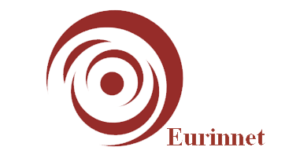European Project:
Value and Attitudes Education For Inclusive Europe
Using Education for Values and Attitudes (EVA) to encourage progressive attitudes toward society, active citizenship, and human solidarity.
This three-year project develops a new education programme called EVIA – Education for Values and Attitudes – and an EVIA educational platform vaeie.eu. The EVIA educational programme will contain a toolkit and media content, that primary and secondary school teachers can access in order to work with students to raise awareness of the European Union goals and history and to cultivate European values of democracy, human rights, gender equality, and the rule of law.
Alongside the academic curriculum, all teachers have the duty to instill in their students, values and positive attitudes towards life and society. Education for values and attitudes is crucially beneficial for society and individuals, the foundation of any national education system, including those in EU countries and candidates. The EU is based on European values: respect for human dignity and human rights, freedom, democracy, equality, and the rule of law. But do we all have the same European values, and are we committed to respecting them? Is it possible that people belonging to different nations or cultures interpret these values in different ways? Is there a way to counteract the fake news and extremist propaganda? Is there a way to ensure that in Europe we all respect the same values and understand them in the same way? We believe that the answer is in education and a transnational collaboration at European level. There are 5.7 million teachers in EU countries alone, and they could have a huge impact on values integration, but only if they could easy collaborate each other on this matter. For these reasons, the EVIA project is creating a European community of teachers who take care of students values and attitudes.
The project uses Education for Values and Attitudes (EVA) to encourage progressive attitudes toward society, active citizenship, and human solidarity. The project supports an inclusive education and society and promotes the peaceful co-existence and integration of diverse groups in Europe, including religious and ethnic minority communities, migrant workers, and refugees fleeing from war, overcoming issues that can promote far right exremisim and anti-European attitudes.

The objectives of the project are:
- To foster social inclusion and integration through enhance Values and Attitudes Education at European level;
- To strengthen the teaching profession through open resources, training, cooperation;
- To harness open education and new technologies for enhance the resources, training, cooperation and democracy of education;
- To foster European integration and raise awareness about European Values and Attitudes Education.
The project outputs are
- EVIA online Platform – An online multilingual, mobile adapted and media integrated platform to host and support the other project outputs.
- Training kit – A kit to train teachers to perform European values education with innovative media-tech integrated aids.
- Toolkit – A toolkit that enables teachers to perform quality values education, through a multilingual collection of media, articles, science papers and lesson plans media-tech integrated on values education topics.
- Teacher’s Community – Teachers will be encourages to use and implement the platform contents, widening the audience and foster values education, in a unitary approach across Europe and using new, engaging methodologies that are more suited today.
A range of communication and dissemination activities will be carried out across Europe to foster social inclusion and integration through enhanced values and attitudes education at a European level and to strengthen the teaching profession through the provision of open resources, training and cooperation activities, fostering European integration and raising awareness about European Values and Attitudes Education.

The project is supported by Erasmus+ and the seven partners are UCLL, Limburg, Belgium (lead partner); Smashing Times, Dublin, Ireland; Music Department of Giessen University, Giessen, Germany; EURINNET NGO, Rome, Italy; History County Museum, Botoșani, Romania; AIGB (Associatia Institutul Geogebra Botosani), Botosani,Romania and PEKSA, Zonguldak, Turkey.








